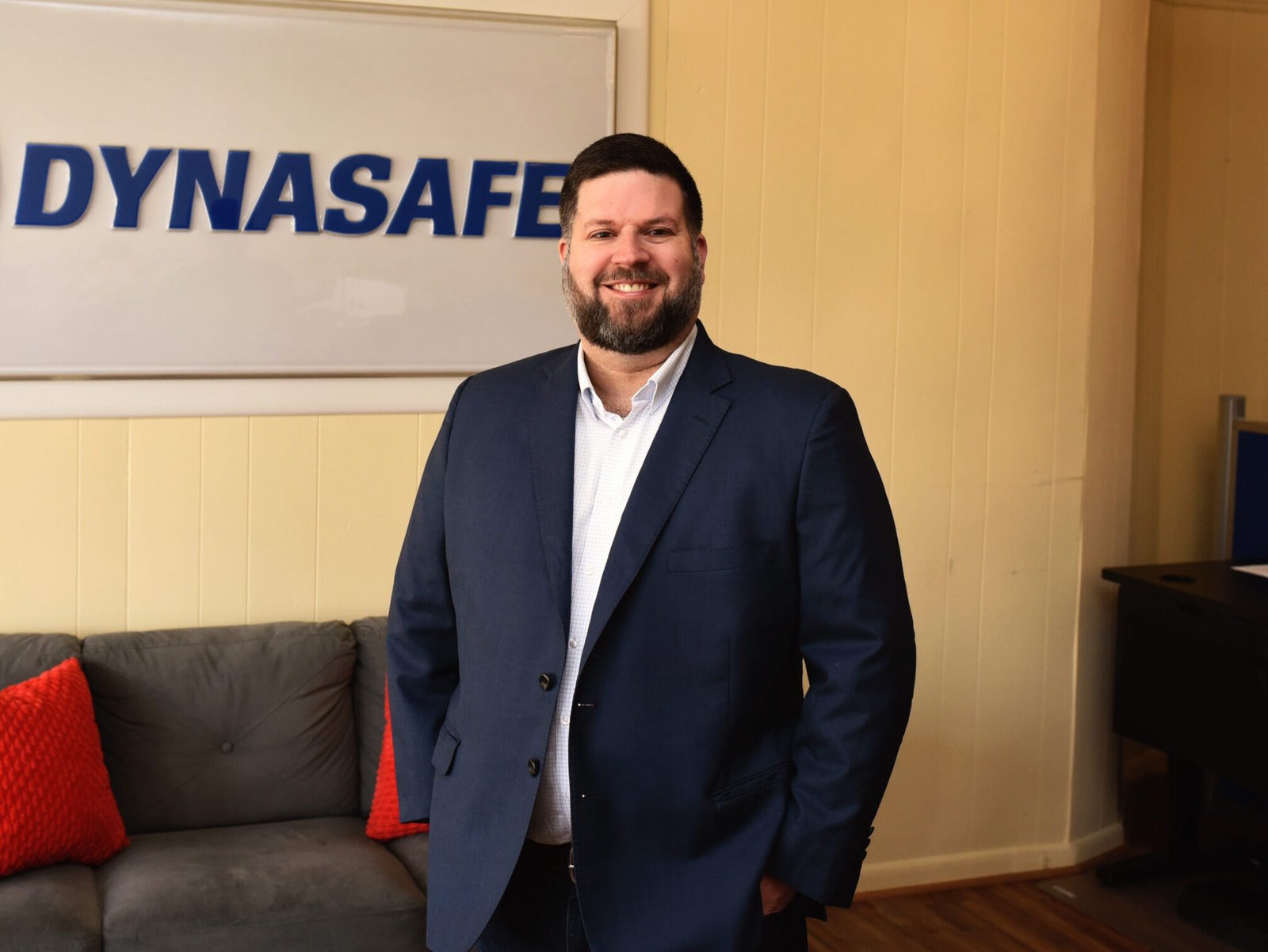I recently went one-on-one with Andrew Duncan, CEO of Infosys Consulting.
Adam: Thanks again for taking the time to share your advice. First things first, though, I am sure readers would love to learn more about you. How did you get here? What experiences, failures, setbacks, or challenges have been most instrumental to your growth?
Andrew: I’m passionate about being on the forefront of technology innovation, from AI to automation to cloud computing. As a lifelong consultant with a varied industry background, what drives me is helping businesses on the critical path of accelerating or achieving their goals.
I’ve seen my clients transform, grow, and prepare for the digital future, making an impact on society at large. Indeed, in my current position, I’ve been lucky enough to lead innovation in many exciting areas: accelerating the manufacturing and distribution of the COVID-19 vaccine, transforming education with AI-powered experiences, and creating new customer experiences for the digital banking future.
It hasn’t always been an easy journey, and I think all business leaders found the last four years to be a turbulent climate to navigate. For much of the pandemic and the aftershock, leaders have spent their efforts on short-term tech decisions and reacting to the rapidly shifting market. Now, we are slowly transitioning back to solving long-term challenges, with a focus on rebuilding a more sustainable and resilient future.
Adam: In your experience, what are the key steps to growing and scaling your business?
Andrew: The bedrock of any scalable enterprise is a crystal-clear vision. It’s the magnetic force that attracts top talent, aligns teams, and inspires unwavering commitment. Before embarking on an aggressive growth trajectory, ensure your core offering is honed to perfection since it’s the foundation upon which your business will be built. Equally crucial is a team that is not just competent but exceptional, so invest heavily in your talent and foster a culture of innovation, collaboration, and accountability. A strong culture is more than just a buzzword; it’s the invisible glue that binds your organization together.
In today’s dynamic environment, growth through technology also remains a top priority for the C-suite. Leaders must continuously reinvent their organizations, leveraging digital advancements to stay ahead of disruption and achieve long-term success. Harness the power of technology to create exceptional customer experiences and loyal advocates.
Finally, financial acumen is non-negotiable for growing and scaling a business. Understand your numbers inside and out, manage cash flow diligently, and seek strategic investments that fuel growth without diluting your vision. This is particularly important in today’s competitive landscape where operational efficiency is paramount, allowing you to streamline processes, reduce expenses, and improve profitability.
Adam: What is your best advice on building, leading, and managing teams?
Andrew: People are the most important asset of any organization. Companies with high employee engagement often outperform competitors in revenue growth and customer satisfaction, so prioritizing relationships with employees leads to a healthy organization fit for the future. This includes building a diverse team, which goes beyond gender, race, and sexuality to include mental and physical health conditions, socio-economic background, religion, and caring responsibilities. Enabling diverse talent to feel they belong is what drives creativity, innovation, and out-of-the-box thinking for clients.
When leading teams, play a proactive role in building awareness and empowering everyone to bring change and a positive future for everyone. Technology can support here. For example, in a hybrid working structure, managers might struggle to identify employees at risk of low productivity or “quiet quitting.” AI-powered feedback mechanisms can provide insights into team dynamics, optimizing workloads, and promoting a healthier work-life balance.
Finally, encourage a culture of continuous learning. By publicly sharing their learning journey, CEOs can inspire employees to embrace challenges and explore new possibilities. This can be achieved through initiatives like executive book clubs, public speaking engagements on learning topics, or even sharing personal learning goals. Ultimately, when employees move on to the next step in their career, they should feel they’ve learned something and enjoyed their time with the firm. My role, and that of my senior team, is to curate careers so that employees leave as better professionals and individuals.
Adam: What are the most important trends in technology that leaders should be aware of and understand? What should they understand about them?
Andrew: Emerging technologies such as AI, machine learning, augmented reality, IoT, and quantum computing can help organizations scale, improve resiliency, minimize infrastructure investments, and rapidly deploy new products and services. These technologies can drive revenue and leapfrog the competition.
For example, generative AI can turn the expensive and challenging innovation game into a winning formula for enhanced productivity, streamlined operations, and maximum quality for minimal time and cost investment. Generative AI is also becoming an indispensable tool to defend against cybercriminals, offering real-time threat detection and response and allowing security teams to neutralize threats before they escalate into significant incidents, reducing the average time for intrusion.
But while gen AI has the potential to fundamentally reinvent businesses across all industries, it’s crucial to set expectations and establish clear boundaries in these early days of human-AI collaboration. Data security and privacy are essential, defining who has access to AI-used data. A robust AI framework builds confidence and prevents employees from feeling uncertain about AI’s role in their employment.
Finally, while still in its early stages, quantum computing also has the potential to revolutionize industries. With its ability to process vast amounts of data exponentially faster than classical computers, quantum computing can tackle complex problems that are currently intractable. Potential applications include drug discovery, materials science, optimization, and cryptography.
Adam: What do you believe are the defining qualities of an effective leader?
Andrew: Leadership is a journey, not a destination. Effective leaders continually develop their skills and adapt their approach to meet the evolving needs of their teams and organizations. Effective leadership is not merely a checklist of attributes, but a dynamic interplay of character, intellect, and emotional intelligence.
I believe the first, and possibly most important quality of an effective leader is authenticity; a genuine and transparent demeanor that fosters trust and credibility. In my experience, successful CEOs are not afraid to be vulnerable, admit mistakes, and seek feedback. Self-awareness and emotional intelligence, with a deep understanding of personal strengths and weaknesses, enhances leadership effectiveness.
Second, resiliency; the ability to withstand setbacks, learn from failures, and emerge stronger. This quality inspires confidence and adaptability. At the same time, I highly believe in the ability to make sound judgments under pressure, weighing risks and rewards with clarity and confidence. Across both my personal and professional life, I live by the advice that resilience – a cornerstone of relentlessness – is a key differentiator.
Finally, I value critical thinking for anyone looking to lead in a modern organization. The ability to analyze complex problems, identify root causes, and develop innovative solutions is crucial to cultivating an environment of problem-solving and continuous improvement.
Adam: How can leaders and aspiring leaders take their leadership skills to the next level?
Andrew: Leaders must be lifelong learners to stay ahead of the curve, with a thirst for knowledge and a willingness to adapt to changing circumstances. However, in today’s complex and interconnected business world, a CEO’s success is increasingly tied to the strength of their network and the diversity of their ecosystem, stakeholders, including customers, investors, employees, and government officials. This interconnectedness offers a myriad of benefits for personal and professional growth, enabling continuous learning even at the peak of your career.
Why? Strong relationships can foster mentorship and coaching opportunities, accelerating personal and professional growth. Building a robust network exposes you to different perspectives, industry trends, and emerging opportunities – and these different viewpoints and experiences spark creativity and innovation. At the same time, a network can provide access to a pool of potential collaborators and solutions, offering varied expertise to tackle complex challenges and deeper insights into different customer segments and markets.
Adam: What are your three best tips applicable to entrepreneurs, executives, and civic leaders?
Andrew: Innovation is the lifeblood of any successful business, and a CEO’s role in fostering a culture of innovation is paramount. This involves more than simply encouraging new ideas; it’s about creating an environment where creativity thrives.
Secondly, the success of a business hinges on the strength of its relationships, both internal and external. A leader’s ability to build and nurture relationships is a critical competency, including engaged and motivated employees, deep customer connections, and strategic partnerships.
Finally, in today’s fast-paced business environment, leaders are constantly faced with complex decisions. The ability to make sound judgments quickly and decisively is essential for success. CEOs must consider the potential impact of their choices on the overall business strategy and its ability to achieve its goals, while at the same time avoiding analysis paralysis which is detrimental to a business. Timely decisions must be made with confidence.
Adam: What are your best tips on the topics of sales, marketing, and branding?
Andrew: Let’s start at the top of the sales funnel: branding. I’m a big believer in authenticity and trust as the bedrock of a brand, particularly in professional services. Purpose-driven organizations revolve around purpose-driven leaders, and CEOs should actively connect their own personal values with the company culture that they are shaping to enable their purpose to come to life. Without this layer of authenticity, their campaigns will be first to receive negative scrutiny from investors, consumers, employees, and other stakeholders. This can have a negative impact on brand reputation and perception.
Marketing campaigns should showcase this authenticity and commitment to quality, which is why I believe client success is the foundation of effective marketing. For example, we regularly highlight our best stories in case studies and thought leadership to foster trust and credibility, which is essential in professional services where expertise is paramount. I also encourage my team to leverage partnerships with media publications to offer clients the chance to showcase their own innovation journey.
This concept of authenticity should also permeate your sales team. My primary goal when interacting with prospects or clients is to gain trust, and I make it clear in all our engagements that the client will realize and potentially exceed their business case in the best possible way. Unfortunately, many companies struggle with measuring the right outcomes even with a consulting partner. They lack clear definitions of success, making it difficult to track progress and translating to missed opportunities and underperformance. Outputs are important, but outcomes provide a deeper understanding of the real value that products, services, or projects deliver to stakeholders and society.
Adam: What is the single best piece of advice you have ever received?
Andrew: Be confident but humble. Every leader needs conviction in their own abilities and ideas, but humility not only inspires others to follow your lead but opens your mind to consider better solutions before making decisions. Everyone has their own path to follow, including their own adversity and failures. Learn lessons from your mistakes, pick yourself back up, and build patience – your aspirations are only limited by your imagination.









